

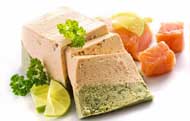
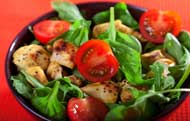
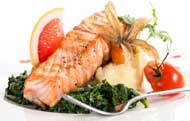

1. Spinach Facts
2. Types of Spinach
3. Spinach Nutritional Value
4. Spinach Health Benefits
English or common spinach (Spinacia oleracea) is a vegetable from the Amaranthaceae family. A very nutritious plant know for its edible leaves.
Spinach was the favourite vegetable of Catherine de Medici, an historical figure in the 16th century. When she left her home of Florence, Italy, to marry the king of France, she brought along her own cooks, who could prepare spinach the way she especially liked. Since this time, dishes prepared on a bed of spinach have been referred to as "a la Florentine" in her honour. The French term "a la florentine" in recipes indicates that the recipe has spinach as a major ingredient.
A little spinach trivia, it is believed that Spinach has long been linked to prosperity. Eat spinach and increase your chances of making more money!
History and Origin
It is believed that spinach was a wild edible green plant found in ancient Persia (Iran). Research indicates that in 647 AD spinach was introduced to China where it was referred to as the “Persian green.” Spinach was introduced by the Moors of North Africa to Spain in the 11th century. By the Middle Ages, spinach was grown and sold throughout the rest of Europe, and in England was known as the “Spanish vegetable.” It was not until the 1400’s that spinach became a staple in Mediterranean cooking.
Research indicates that spinach, which does not grow well in hot weather, was successfully cultivated in the hot and arid Mediterranean climate by Arab agronomists through the use of sophisticated irrigation techniques as early as the eighth century A.D.
- • English or common spinach (Spinacia oleracea)
- • Silverbeet or Swiss chard (Beta vulgaris)
- • French spinach or orach (Atriplex hortensis)
- • New Zealand spinach (Tetragonia expansa)
- • Chinese spinach (Amaranthus gangeticus)
- • Water spinach (Ipomoea aquatica)
- • Indian spinach (Basella rubra).
Vegetables " Spinach "
Nutritional value per 100 g
Spinach, cooked, boiled, drained, without salt
|
Nutrient ( Proximate's )
|
Unit
|
Value
|
Daily Value %
|
|
Energy
|
kcal
|
23 | 1.1% |
|
Protein
|
g
|
2.97 | 5.9% |
|
Total lipid (fat)
|
g
|
0.26 | 0.3% |
|
Carbohydrate, by difference
|
g
|
3.75 | 1.3% |
|
Fiber, total dietary
|
g
|
2.4 | 8.5% |
|
Sugars, total
|
g
|
0.43
|
|
|
Minerals
|
|||
|
Calcium, Ca
|
mg
|
136 | 10.4% |
|
Iron, Fe
|
mg
|
3.57 | 19.8% |
|
Magnesium, Mg
|
mg
|
87 | 20.7% |
|
Phosphorus, P
|
mg
|
56 | 4.4% |
|
Potassium, K
|
mg
|
466 | 9.9% |
|
Sodium, Na
|
mg
|
70 | 3% |
|
Zinc, Zn
|
mg
|
0.76 | 6.9% |
|
Copper, Cu
|
mg
|
0.174 | 19.3% |
|
Manganese, Mn
|
mg
|
0.935 | 40.6% |
|
Selenium, Se
|
mcg
|
1.5 | 2.7% |
|
Vitamins
|
|||
|
Vitamin C, total ascorbic acid
|
mg
|
9.8 | 10.8% |
|
Thiamin (B-1)
|
mg
|
0.095 | 7.9% |
|
Riboflavin (B-2)
|
mg
|
0.236 | 18.1% |
|
Niacin (B-3)
|
mg
|
0.490 | 3% |
|
Pantothenic acid (B-5)
|
mg
|
0.145 | 2.9% |
|
Vitamin B-6
|
mg
|
0.242 | 14.2% |
|
Folate, total (B-9)
|
mcg
|
146 | 36.5% |
|
Vitamin B-12
|
mcg
|
0.00
|
|
|
Vitamin A, RAE
|
mcg
|
524 | 58.2% |
|
Vitamin E (alpha-tocopherol)
|
mg
|
2.08 | 13.8% |
|
Vitamin D (D2 + D3)
|
mcg
|
0
|
|
|
Vitamin K (phylloquinone)
|
mcg
|
493.6 | 411.3% |
|
Lipids
|
|||
|
Saturated Fatty Acids
|
g
|
0.043
|
0.2% |
|
Monounsaturated Fatty Acids
|
g
|
0.006
|
|
|
Polyunsaturated Fatty Acids
|
g
|
0.109
|
|
|
Trans Fatty Acids
|
g
|
0.000
|
|
|
Carotenoids
|
|||
|
Beta-Carotene
|
mcg
|
6288
|
|
|
Alpha-Carotene
|
mcg
|
||
|
Beta-Cryptoxanthin
|
mcg
|
||
|
Lutein + zeaxanthin
|
mcg
|
11308
|
|
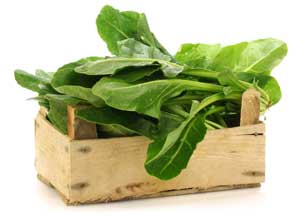
|
Reference Values are based on a 2,000 Calorie Intake, for Adults and Children 4 or More Years of Age. Your daily values may be higher or lower depending on your calorie needs.
|
|
Percentages are roughly approximated using (RDA) Recommended Dietary Allowances for adults. Source: Nutrient Database - USDA (United States Department of Agriculture)
|
|
Reference Values for Nutrition - FDA U.S. Food and Drug Administration
|
Spinach Nutritional Value
|
Spinach is one of the worlds most nutritious vegetables. Spinach is an excellent source of many vitamins, minerals and antioxidants. A vegetable that truly packs a punch with essential nutrients.
|
|
A nutrient rich plant, spinach is commonly found on lists of top super foods. Super foods are nutrient-rich foods considered to be especially beneficial for health and well-being.
|
Spinach has an extremely high nutritional value and is rich in antioxidants. It is a good source of vitamins A, B2, C and K, and also contains magnesium, manganese, folate, iron, calcium and potassium.
Spinach has many health benefits. Add Spinach to your diet to aid detoxification, maintain bone health and muscles, reduce inflammation, maintain a healthy heart, treat anaemia, help prevent cancer, improve digestion, improve skin and eyes, lower blood pressure and aid with weight management.
Epidemiological studies and associated meta-analyses strongly suggest that long term consumption of diets rich in plant polyphenols offer protection against development of cancers, cardiovascular diseases, diabetes, osteoporosis and neurodegenerative diseases.
Calorie for calorie, spinach is one of the most nutritious vegetables around. It is not only rich in vitamins and minerals but in phytonutrients, which act as powerful antioxidants to protect cellular structures and DNA.
With its delicate sweet flavour, spinach can be enjoyed cooked (it takes just 1 minute!) or raw in a salad, so it is as easy to prepare, as it is nutritious.
To get the most nutritional benefit when cooking spinach, steam it or cook lightly in a small amount of water.
- DIABETES MANAGEMENT (Antioxidant - alpha-lipoic acid)
- ASTHMA PREVENTION (Beta-carotene)
- KEEPS HEART HEALTHY (High potassium levels)
- HEALTH SKIN AND HAIR (High in vitamin C and A)
- ANTIOXIDANT BENEFITS (Vitamin C, Vitamin E and Vitamin A)
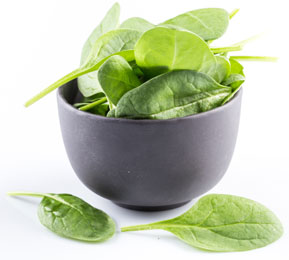
- IMPROVES BONE HEALTH (Vitamin K)
- BLOOD PRESSURE LOWERING (High potassium levels)
- PROMOTES REGULARITY (High in fiber and water)
- ANTI-INFLAMMATORY AND ANTI-CANCER (Lots of flavonoid compounds)
- IRON DEFICIENCY ANEMIA (High in iron)
References
|
Nutrient Database - USDA (United States Department of Agriculture)
|
|
Reference Values for Nutrition - FDA U.S. Food and Drug Administration
|
For More Information
|
Spinach - From Wikipedia, the free encyclopedia
|
